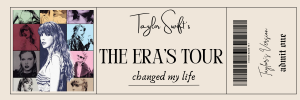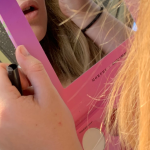
The holiday time of year is a bit of a tumultuous one for students. Final exam results are coming out, work is ramping up for casuals, and seeing family can sometimes be an interesting experience, especially if you aren’t close. Bets are, if you are feeling this way, your friends are too. However, reaching out and knowing what to say can be really difficult. We’ve chatted with the team at the Mindful Collective before, about coping during the COVID-19 lockdown, but we’ve teamed back up with them to chat about reaching out to friends and family and the self-care involved in supporting others.
For those who don’t know, talk to us about TMC and what it does?
The Mindful Collective is a psychology practice based in Paddington, Queensland. We offer a range of therapies including Psychological Therapy and Counselling! TMC also runs a diverse range of workshops in and around our studio aimed at a variety of ages and stages, and focusing on topics or struggles that we all face in our daily life.
Mental health is an incredibly vocal topic among students and is becoming a less and less taboo conversation. Have you seen this reflected in your practice with young people receiving help?
Yes! In my experience, I have found that more recently our young people are more likely to be open about their mental health and experiences, but only with people from the same generation (their peers), rather than those in previous (older) generations.
You’re running an event called Reaching Out: Providing Effective Support for Family and Friends During the Holidays, what does this course entail?
Yes! Reaching Out is all about providing education and effective tools for those who might have people in their life who struggle with mental illness. There are so many misconceptions about mental health that have formed over time – it’s insane! We hope to debunk a lot of these myths, teach our participants the do’s and don’ts of how to help those who are struggling with anxiety/panic attacks or expressing suicidality/suicidal intent.
Reaching Out will be run by our Director and Principal Psychologist, Amy Kate Isaacs, and our two therapy assistants Maggie and Alana who will be answering any questions that may pop up!
It’s a huge emotional energy output to provide support, what kind of techniques do you go over in this workshop?
It absolutely is! It’s so vital to keep in mind that before you can take care of someone else, you must first take care of yourself. With this in mind, we make sure to cover self-care focused education and techniques during the workshop (everyone’s version of self-care is different! It’s definitely not a one-size-fits-all kind of deal)*
You talk in the workshop about a mental health toolkit, how do people build up a toolkit if they feel like they’re flailing?
This is not an unfamiliar feeling – it can quite often feel overwhelming to support someone else through their struggles, if we don’t have the knowledge and resources to back us up. With all of our workshops, we provide a take-home workbook designed in house that you can keep with you forever. These workbooks are chock-full of information, resources and a place for any notes and ideas that you may have.
It’s also okay to say that you aren’t the right person for the job – and this is so important. There’s a good chance that sometimes we aren’t the right person to provide support, and it’s not a bad thing to say so. We hope that our workbook will provide enough education around mental health and support for them to be able to make that informed choice, and provide external supports.
What do you think is missing in the conversation surrounding providing emotional support for those close to us?
This is such a good question! I think what’s missing is probably a form of understanding. There’s still a lot of judgement that can come from people that can be super invalidating – the thought process of “well they haven’t been through x or y so they have no right to be anxious/sad/depressed/upset”. You can’t compare experiences – everyone experiences things so differently, it’s so unhelpful to think that way. So, I think that a non-judgemental approach to conversations surrounding mental health is still something we need to work on.
For students who are looking to get more mental health support, what options are available to students, either at your practice or elsewhere?
It’s so wonderful to see just how many resources (and diverse ones at that!) are now available for both in-person and online support! We will be covering an extended range of resources so people have a reference for support for others (as well as themselves). We particularly love: the myCompass resource developed by Black Dog Institute (mycompass.org.au). They have heaps of interactive activities, assessments and ways to track your progress.
*We do have a self-care BINGO on our socials that might help to visualise the range of different types of self-care!







